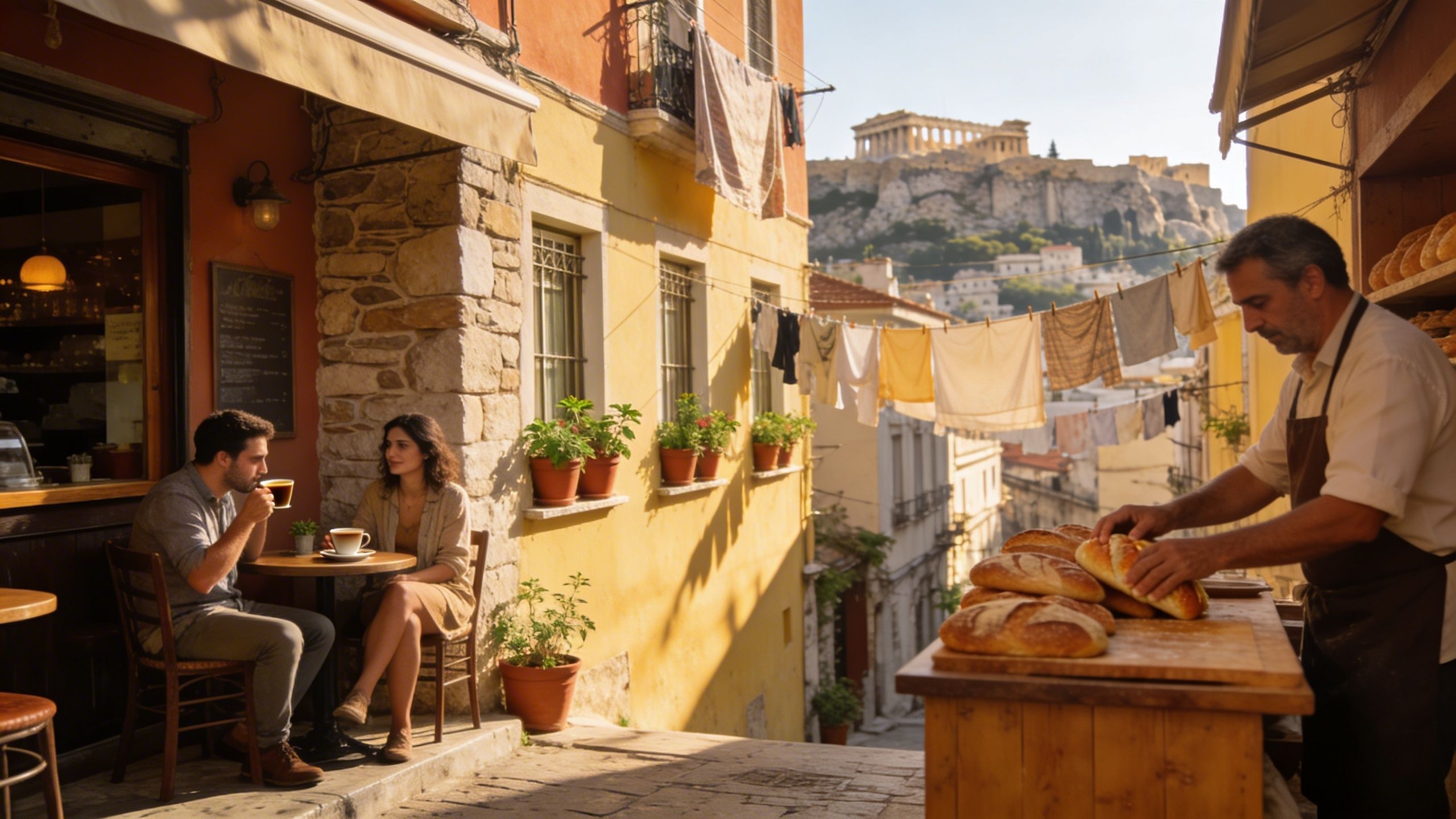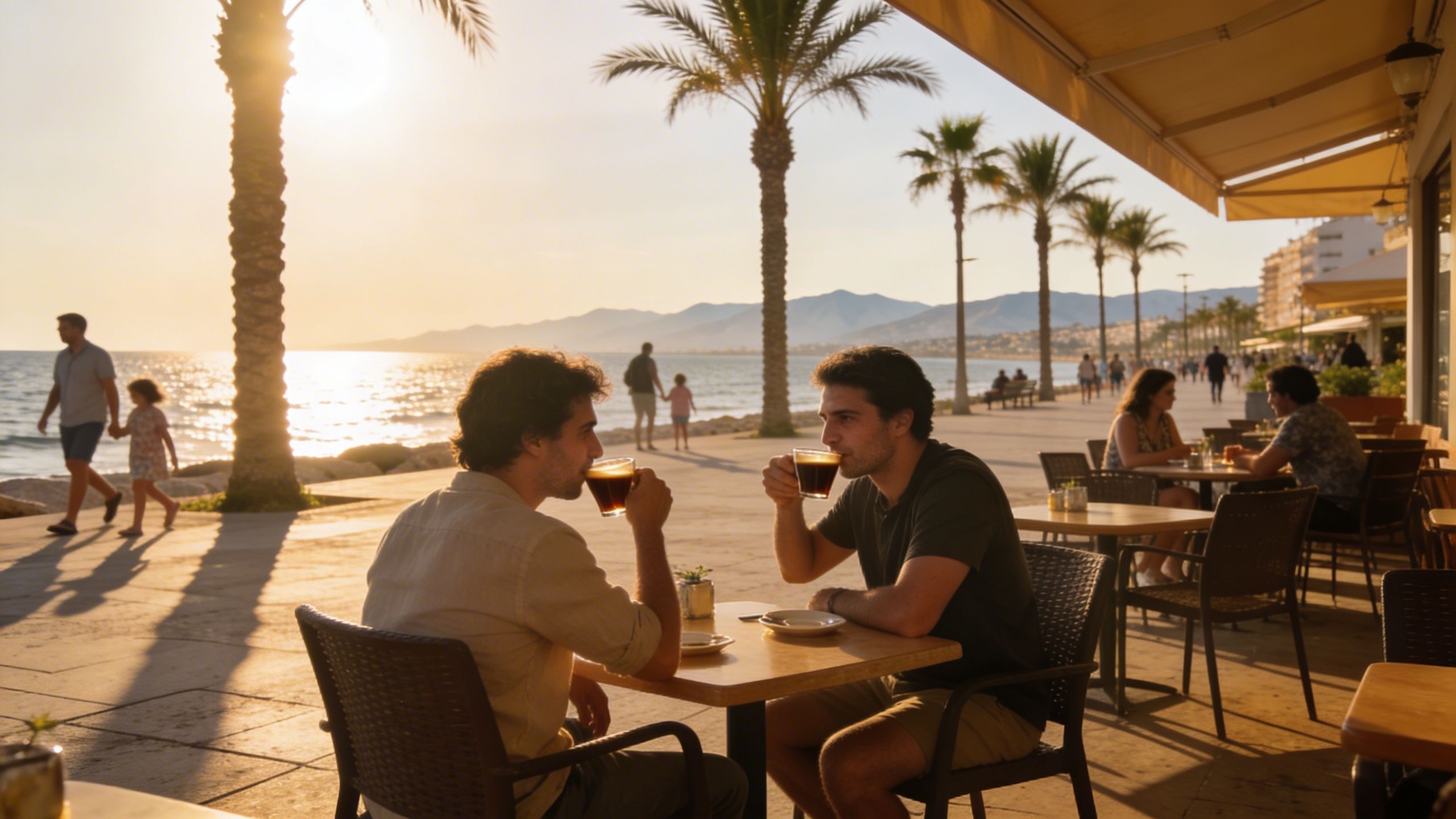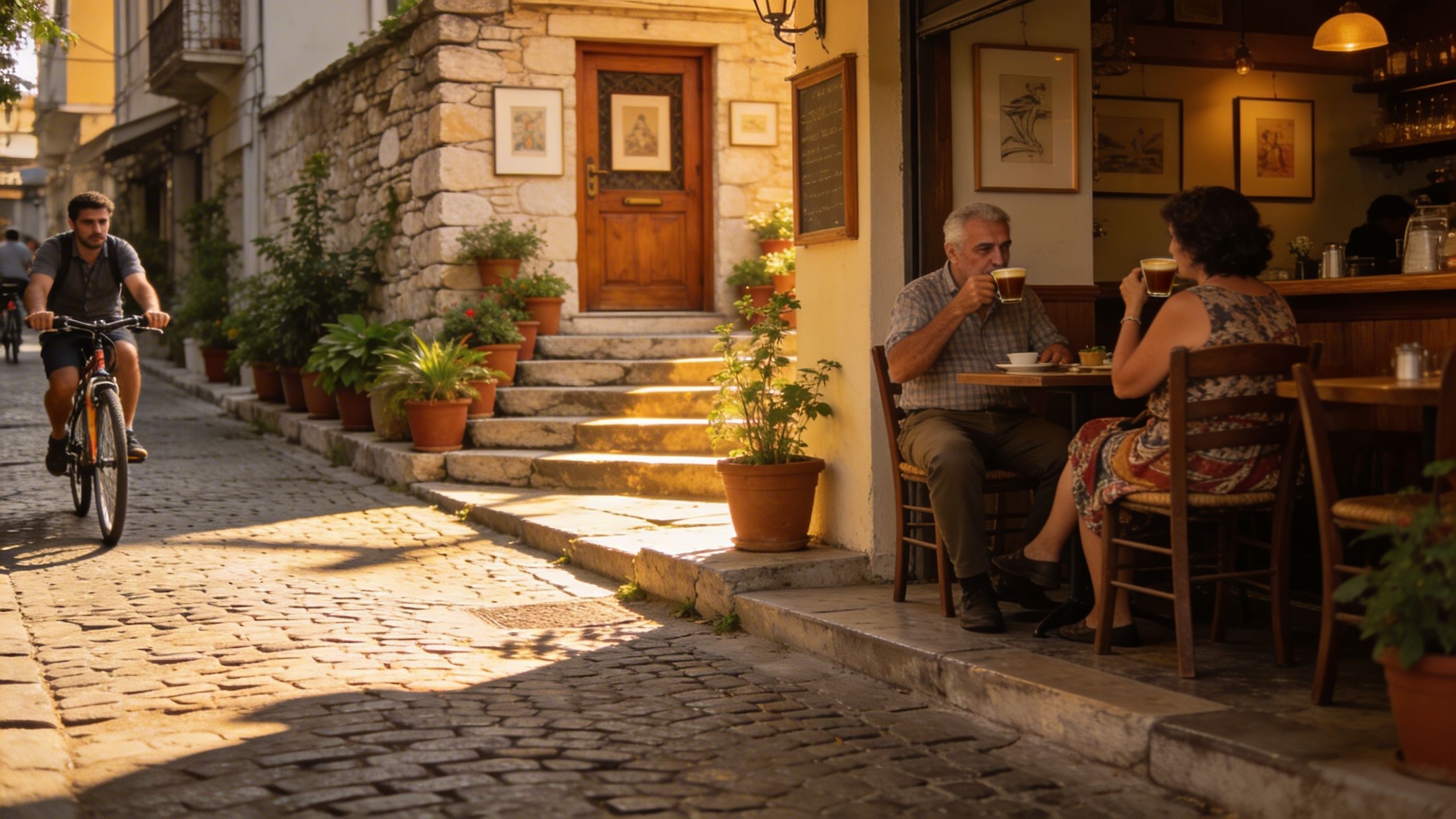Cyprus: Permits, Planning & the Lifestyle You’re Buying
Fall for Cyprus’s sunlit streets and village rhythms — then use targeted due diligence on planning zones, permits and municipal quirks to protect your dream.
Imagine an early morning in Larnaca: espresso-rich air, fishermen hauling nets at the marina, bougainvillea shading a narrow street where a neighbour hangs freshly made halloumi to cool. In Cyprus the rhythm is sunlit and tactile — mornings in cafes, afternoons on pebble beaches, evenings that last long over wine and conversation. For an international buyer drawn to that lived-in warmth, the dream is immediate; the reality arrives when you start asking about permits, planning zones and legal quirks that shape what you can actually build, repair or restore. This guide stitches the island’s sensory life to the practical due diligence you’ll need, with sourced insights so you move with both heart and certainty.
Living Cyprus: sun, streets and seasonal rhythms
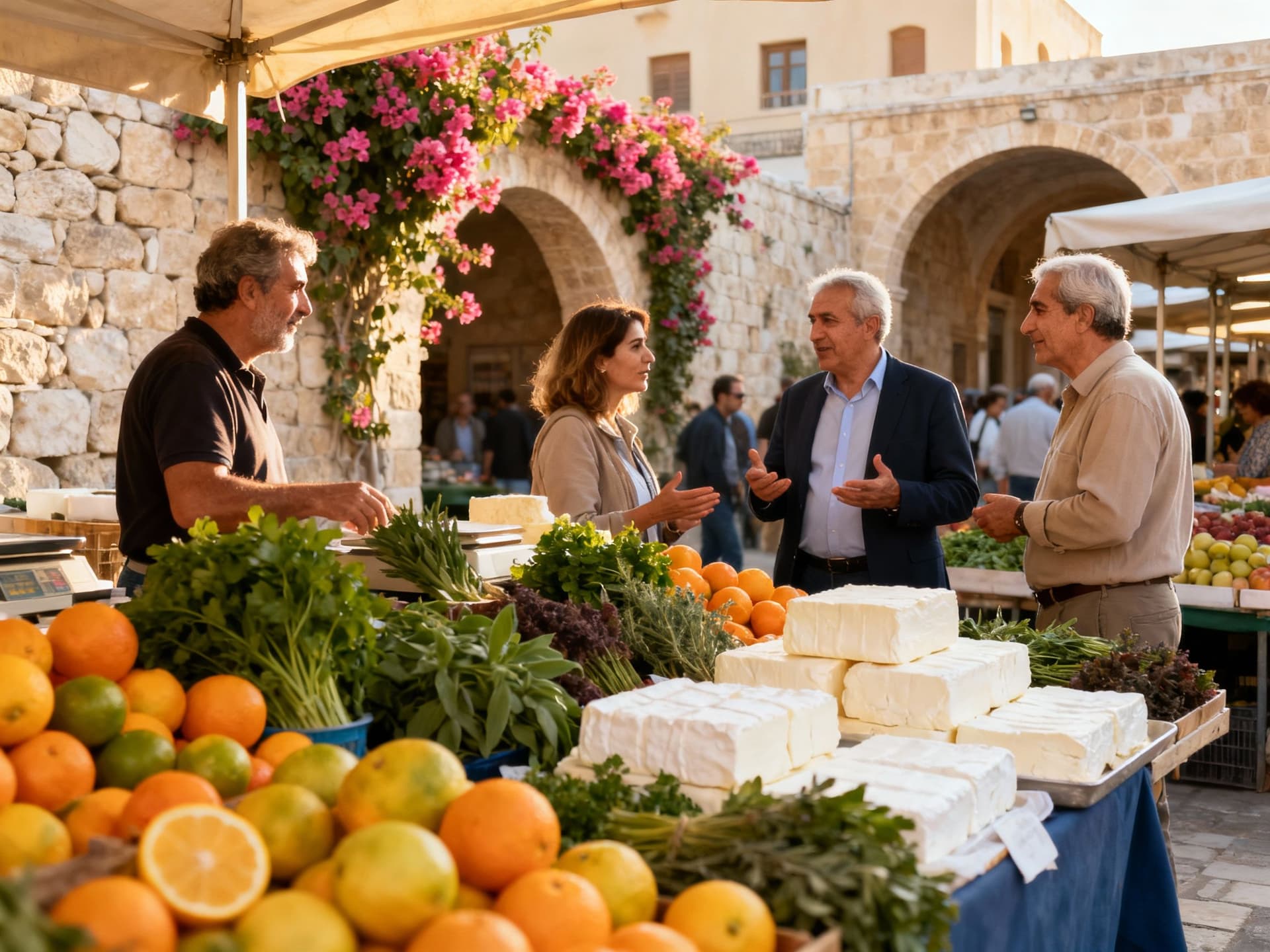
Life in Cyprus moves around seasons rather than clocks: spring wildflowers in the Troodos, summer salt on your skin in Protaras and quiet olive‑harvest weeks in mountain villages. Streets near Limassol’s Molos are friendly and lively at dusk; Paphos’s old town smells of coffee and cedar; tucked lanes in Omodos still host wine presses and Sunday markets. These everyday textures matter because the way you want to live — a garden for citrus, a rooftop terrace for evening breezes, or a courtyard for shade — should drive which permits and local rules you prioritise before you sign.
Neighbourhoods that define different Cypriot lives
Limassol mixes marina glamour with old‑town cafés and is perfect if you want coastal promenades and nightlife. Paphos offers quieter, history‑rich streets and strong expat pockets near Kato Paphos. Larnaca combines an authentic seafront life with a growing creative scene around the Finikoudes promenade. Each area’s feel is inseparable from planning rules: conservation zones in Paphos limit exterior changes; Limassol’s waterfront redevelopment brings denser new builds and stricter coastal set‑backs.
Food, markets and daily rituals
Weekends are for markets: Larnaca’s municipal market offers peppers and thyme, while Paphos’s harbour cafés serve fish grilled the same morning. You’ll quickly learn which blocks have year‑round life and which are snowbird neighbourhoods, and that affects rental yields and community resilience. Recent market reports show house prices rising unevenly across districts, which means lifestyle choices and investment returns often travel together — choose the life first, then confirm the market facts.
- Lifestyle highlights — local places and small delights
- Morning coffee at To Kazani in Pissouri, then a slow walk on Pissouri Bay beach
- Saturday market in Omodos for halloumi and village bread — great for sourcing local materials and tradespeople
- Sunset aperitivo on Limassol’s Molos, watching families and cyclists — an instant sense of community
Making the move: process meets the island’s rules
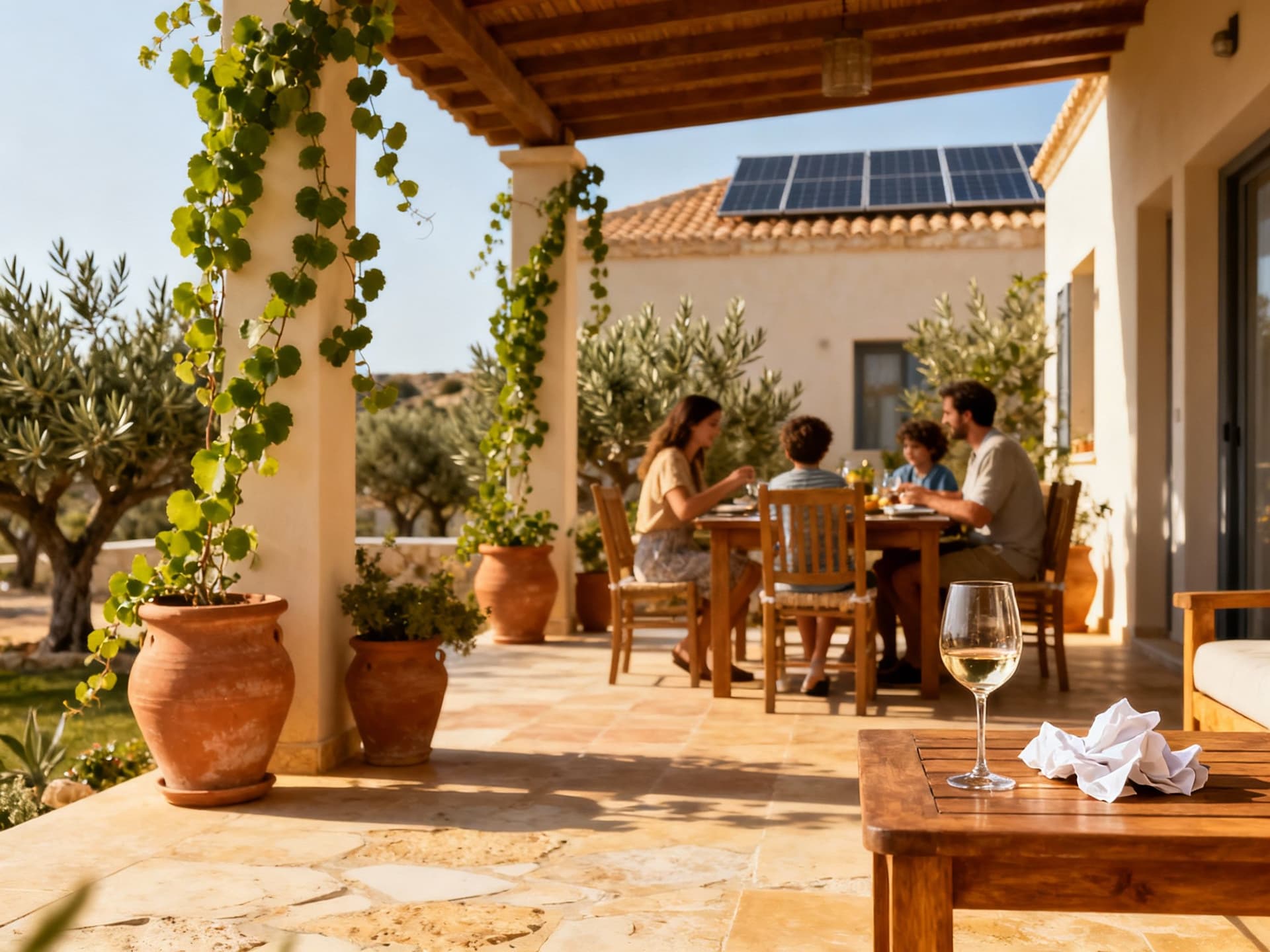
The emotional part — falling for a stone house under vines — is where most buyers start. The practical part begins when you discover whether your parcel is in a development zone, a conservation area, or a non‑building zone. Cyprus requires planning and often building permits; from July 2024 many applications moved online through the Hippodamos system, a reform meant to speed decisions but which still leaves room for local interpretation and delays. Treat permits not as boxes to tick but as constraints that shape what your life there will actually look like.
Property types and how they match life
A restored village house gives immediate character and a courtyard for edible plantings, but often carries hidden informal works that need legalising. A modern Limassol apartment may offer energy‑efficient glazing and easier maintenance, yet lacks garden life. Villas near Paphos or Protaras often give solar potential and space for water‑wise landscaping. Match the property form to how you want to live — then let due diligence test feasibility and cost: legalising an unauthorised extension can be costly or impossible depending on local planning maps.
Working with local experts who protect your lifestyle
A local architect or chartered surveyor familiar with district building authorities will save you weeks of frustration; Cyprus still operates with multiple planning and building authorities and, in practice, municipal customs matter. Use a lawyer experienced with the Department of Lands and Surveys to check title, outstanding encumbrances and whether the plot has any preservation orders. Ask your agent for past permit success stories in the exact municipality — that practical local memory is gold.
- Six lifestyle‑driven practical steps before you bid
- Confirm the local zoning and any preservation orders with the Town Planning authority.
- Commission a structural and services survey to reveal unauthorised works or faulty drainage.
- Ask for recent permit approvals for similar works in the same municipality — past approvals predict future outcomes.
- Check district-level utility capacity (water, sewage, EAC) for expansions like pools or large gardens.
- Review tax and residency implications with a Cyprus tax adviser — lifestyle changes can shift tax residency and obligations.
- Build contingency for permit delays and informal‑works regularisation into your offer (10–20% of renovation budget).
Insider knowledge: local realities expats often miss
Expats often assume paperwork is the same across the island; it’s not. Municipalities have habits — some accept small regularisations, others strictly enforce original permits. Licensing delays remain a real issue in bigger projects, and national reforms aim to streamline licensing but they are a work in progress. Also, property price momentum varies: recent indices show steady growth but a slowing pace in parts of the market, so timing and local choice matter more than betting on broad national moves.
Cultural cues that shape where you’ll feel at home
Cypriots prize outdoor life, seasonal food and long family dinners; neighbours expect a respectful pace and informal friendliness. Learn a few words of Greek, attend a village festival, and your integration curve shortens. Local customs also influence planning — courtyard gardens and stone walls are valued in village zones, while coastal strips push for set‑backs and public access. Respecting these cultural layers smooths approvals and enriches daily life.
Long‑term lifestyle and stewardship considerations
If your vision includes regenerative gardens, solar arrays or rainwater capture, check municipal rules and grid‑tie conditions early. Investing in low‑impact retrofits often wins both planning favour and long‑term savings, but you’ll need local specialist quotes and explicit permit pathways. Think in seasons: droughts and tourism peaks affect water and waste services, so plan resilient landscaping and off‑grid options as part of due diligence.
- Red flags to watch for in Cyprus property due diligence
- Missing title deeds or unclear parcel boundaries at the Department of Lands and Surveys.
- Unauthorised extensions or additions that may be impossible to legalise.
- Conservation or preservation orders that limit external alterations.
- Utilities that can’t support your intended upgrades (pool, irrigation, EV charging).
Conclusion: fall for Cyprus, but buy with a steward’s eye. Let neighbourhood rhythms guide your dream, then let careful local due diligence protect it. Work with an agent who knows the municipality, a lawyer fluent in the Department of Lands and Surveys, and an architect who understands Hippodamos and preservation rules. Start with lifestyle priorities — garden, market, sail or mountain — then translate them into permit checks, surveys and contingency budgets. That blend of heart and rigor is how you turn a Cypriot dream into a durable life.
Norwegian market analyst who relocated from Oslo to Provence; guides investors with rigorous portfolio strategy and regional ecological value.
